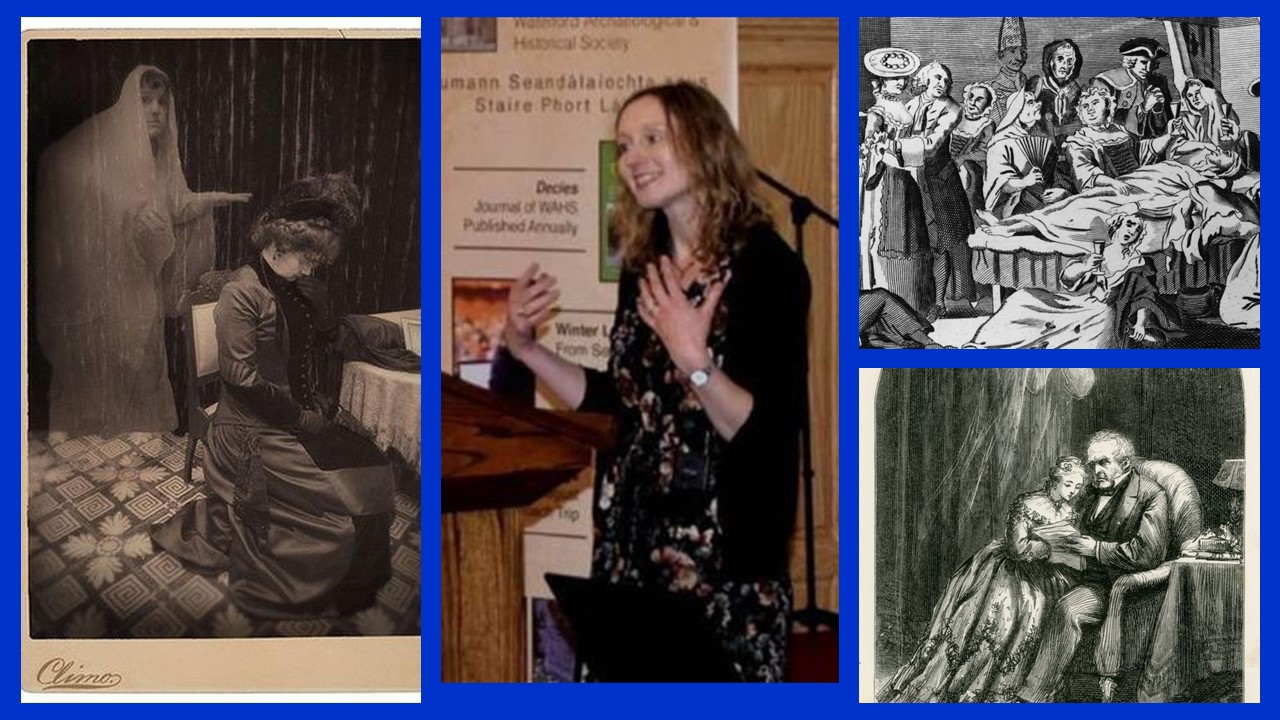In “crisis apparition” stories, the dying or just-dead person visited a neighbor, friend, or close relative and a key feature was that the percipient would declare what they had seen, even before confirmation had arrived of the death. There are hundreds of recorded accounts dating from between the 1820s and 1940s, both reported in Ireland and among Irish people abroad. These crisis apparitions, communicated across the Atlantic, reflect the anxieties of ‘exiles’ and their friends and families about death far from home, and the ghostly visits bridged gaps in conventional communications. Accounts of supernatural leave-taking were repeated within families and communities, showing that storytelling assisted the processing of grief and the handing down of the dead over generations, in ways that are relevant to other contexts far beyond Ireland’s shores.
Dr. Clodagh Tait lectures in Mary Immaculate College, University of Limerick. She is the author of Death, Burial and Commemoration in Ireland, 1550-1650 (2002) and co-editor of Religion and Politics in Urban Ireland (2016) and Age of Atrocity: Violence and Political Conflict in Early Modern Ireland (2007). She is a current joint editor of Irish Historical Studies. She has written numerous articles on Irish social and cultural history, including the history of violence, martyrdom and protest; pregnancy, childbirth, (wet-)nursing and child-rearing; religious devotion; ideas about the supernatural; and the history of emotion. Principally an early modernist, her recent research also considers the folklore of the nineteenth and twentieth centuries. Her article on the supernatural labors of Irish mothers was in a Past and Present Supplement, Mothering’s Many Labours, in 2020, and she published seven short articles for Birth and the Irish (edited by Salvador Ryan, 2021). Her forthcoming article on women’s and gender history in early modern Ireland will appear in a special issue of Irish Historical Studies, ‘Revisiting the Agenda for Women’s History’, in November 2022. She is writing a book on the history of cursing in Ireland between about 1550 and 1950.
